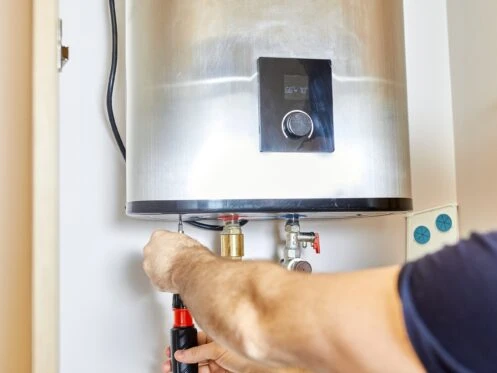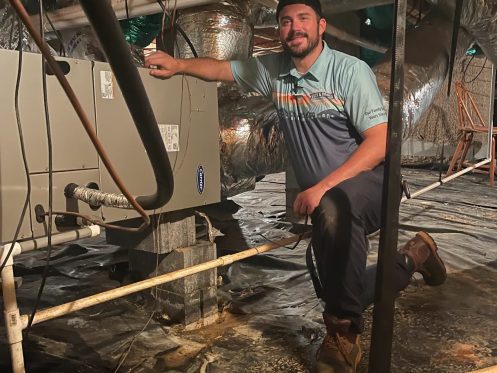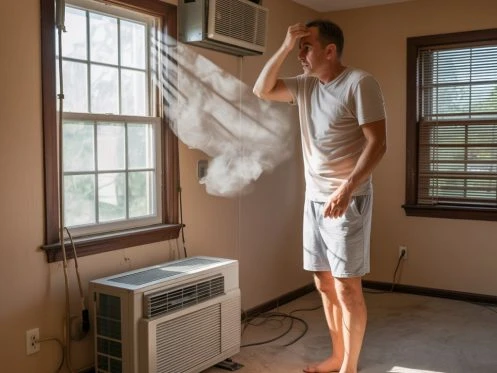Serving Greenville & Surrounding Areas
Tips For Extending The Life Of Your Tankless Water Heater

Tankless water heaters have some major advantages over traditional units, including being more energy efficient and costing less to run. Another reason a tankless unit can be such a great investment is that it can potentially last for 20+ years, whereas traditional units rarely last for more than 10 to 12 years. Nonetheless, there are some essential steps you need to take if you want to get as much life as you can out of your tankless water heater, and this article will explain what the most important steps are and what difference they make.
Schedule Annual Inspections and Maintenance
The most important thing you can do to protect your tankless water heater is to make sure you keep it properly maintained. While tankless units have fewer maintenance requirements than traditional water heaters, you should still make sure to have an experienced, professional plumber inspect and service your water heater at least once a year.
Some tankless units have an inline filter on the water inlet pipe that’s designed to trap things like sediment and mineral deposits. If your unit does have this type of filter, it’s important that you have it cleaned once or twice a year since it will eventually start clogging up. If you don’t have a water filter, installing one can also help prevent damage and allow your water heater to last longer. Many gas units also have an air filter that prevents dust and debris from getting sucked inside the combustion chamber and potentially clogging up the burners, and this filter also needs to be cleaned regularly.
When servicing the unit, the plumber will also perform an inspection to make sure no components are wearing out and that it hasn’t developed any issues. If you have a gas unit, they’ll also test to make sure it is still properly vented to make certain all of the combustion fumes flow directly outside. This step is essential since you could end up with carbon monoxide leaking out into your house if the unit isn’t venting correctly.
Flush and Descale the Unit Regularly
When it comes to maintaining a tankless water heater, the most important step is to flush and descale it. This is done by running vinegar or a special descaling solution through the unit to loosen up calcium and other mineral deposits and flush them out. In South Carolina where most homes have fairly soft water, you’re usually fine with just descaling your water heater once a year. In areas with hard water, descaling your water heater twice a year is best since hard water will result in lots more mineral deposits building up inside the unit.
The owner’s manual for your water heater should explain exactly what steps are involved in flushing the unit. If you want to try and flush the unit yourself, you’ll need a large bucket, a submersible pump, the descaling agent, and two hoses that connect to the valves on the hot- and cold-water service ports. Descaling a tankless water heater is fairly simple and doesn’t take that long. Nonetheless, the easiest option is to just have a plumber do it for you during the annual maintenance service, which is easy not to miss and will save you money if you sign up for a service agreement.
Consider Installing a Water Softener
If your home has hard water, installing a water softener to treat your water and remove excess minerals is also a great way to protect your water heater. It also protects the rest of your plumbing system and appliances. That’s because a water softener will work to remove almost all dissolved minerals in your water supply and greatly reduce the amount of mineral deposits that collect in your water heater. The way a water softener works is through an ion-exchange process that captures all of the dissolved calcium and magnesium ions and replaces them with a miniscule amount of sodium.
Monitor Its Performance
Another key to protecting and potentially extending the life of your tankless water heater is to get it repaired immediately when it develops any type of issue. Monitoring the unit’s performance is an easy way to tell if you need to have it serviced or repaired. One of the main things to watch for in terms of performance is if you suddenly start experiencing longer lag times than normal. That means if it takes more time for hot water to finally start flowing when you turn a faucet or shower on. The other sure sign you need to contact a plumber and have the unit inspected is if the water no longer gets fully hot.
Try to Limit How Much Hot Water You Use at One Time
All tankless water heaters have a specific flow rate, which is how many gallons of hot water they can produce per minute. When you’re taking a shower or otherwise only have one fixture that’s using hot water, a tankless unit typically only runs at partial capacity. It always turns on at full power, but it will then usually run at 50% power or less as soon as it gets hot. However, when you have multiple fixtures on and the amount of hot water you’re using is closer to your water heater’s maximum flow rate, it will run at close to full power and be under more strain.
If the unit runs at full capacity too often, the increased wear and tear it experiences during these times can easily end up shortening its life span. That’s why it’s a good idea to be careful about how often anyone showers at the same time your dishwasher or washing machine is running, and try to avoid simultaneously doing dishes and washing clothes.
Keep the Water Temperature Set to 120 Degrees Fahrenheit
Another easy way to reduce the strain on your tankless water heater and lessen the wear and tear it experiences is to not set the temperature higher than 120 degrees Fahrenheit. While some people prefer their hot water to be 140 degrees, a water heater has to work harder to reach this temperature. The water heater will also run a bit longer each time it comes on since it takes more time for its heat exchanger to get fully hot when the temperature is set higher.
Setting your water heater to 120 degrees will also save you some money by reducing how much energy the unit uses. One hundred and twenty degrees is also plenty hot enough to handle all of your cleaning and sanitization requirements. When your hot water is 120 degrees, there’s also much less chance of anyone being scalded.
For more than 55 years, Tuck & Howell, Inc. has been assisting homeowners in Greenville, SC and the surrounding areas with their plumbing, heating and air conditioning needs. We offer expert water heater services, and our highly skilled, experienced plumbers work on tankless and traditional water heaters from every brand. If your water heater gives out, we specialize in installation as well and have a variety of excellent options to suit your home’s hot water needs. If you’re dealing with a leak or any other plumbing or HVAC emergency, we offer 24/7 repair services.
To schedule a maintenance appointment and let our team help you get the most out of your water heater, contact us today.




